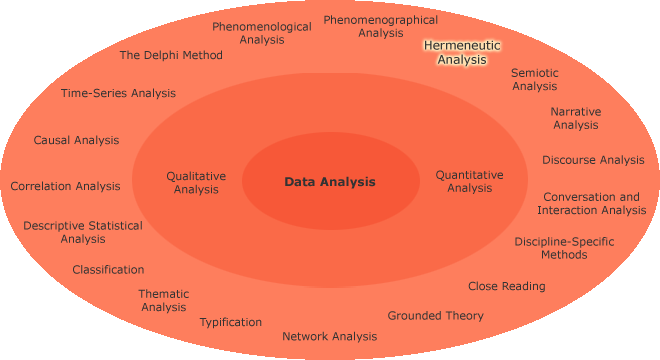Hermeneutic Analysis
Hermeneutic analysis is a name for various methods of analysis, which are based on interpreting.
The strategy forms an opposite to those research strategies which stress objectivity and independence of interpretations in the formation of knowledge. Hermeneutic research includes various different approaches. Methods of analysis may also vary, and in different disciplines discipline-specific methods exist for interpreting phenomena. Hermeneutic analysis enables you to elicit an in-depth understanding of meanings of, for example: human practices, culture, works of art and texts. Understanding is produced through systematic interpretation processes. These processes are known as a hermeneutic circle Interpretation of details affects the interpretation of the entire phenomenon; reviews of these interpretations produce a deepening understanding of the phenomenon. You can combine hermeneutic analysis with other methods of analysis that aim to interpret and understand meanings. A combination of the rules of hermeneutics and phenomenology forms phenomenological hermeneutic analysis. Hermeneutic analysis also forms the basis of various discipline-specific methods of analysis and close readings methods.
Read more on hermeneutic analysis from the links below:
Hermeneutic circle. Wikipedia, The Free Encyclopedia.
Read what is written in Strategies on hermeneutic research.
Read what is written in Philosophies of Science on hermeneutics.

